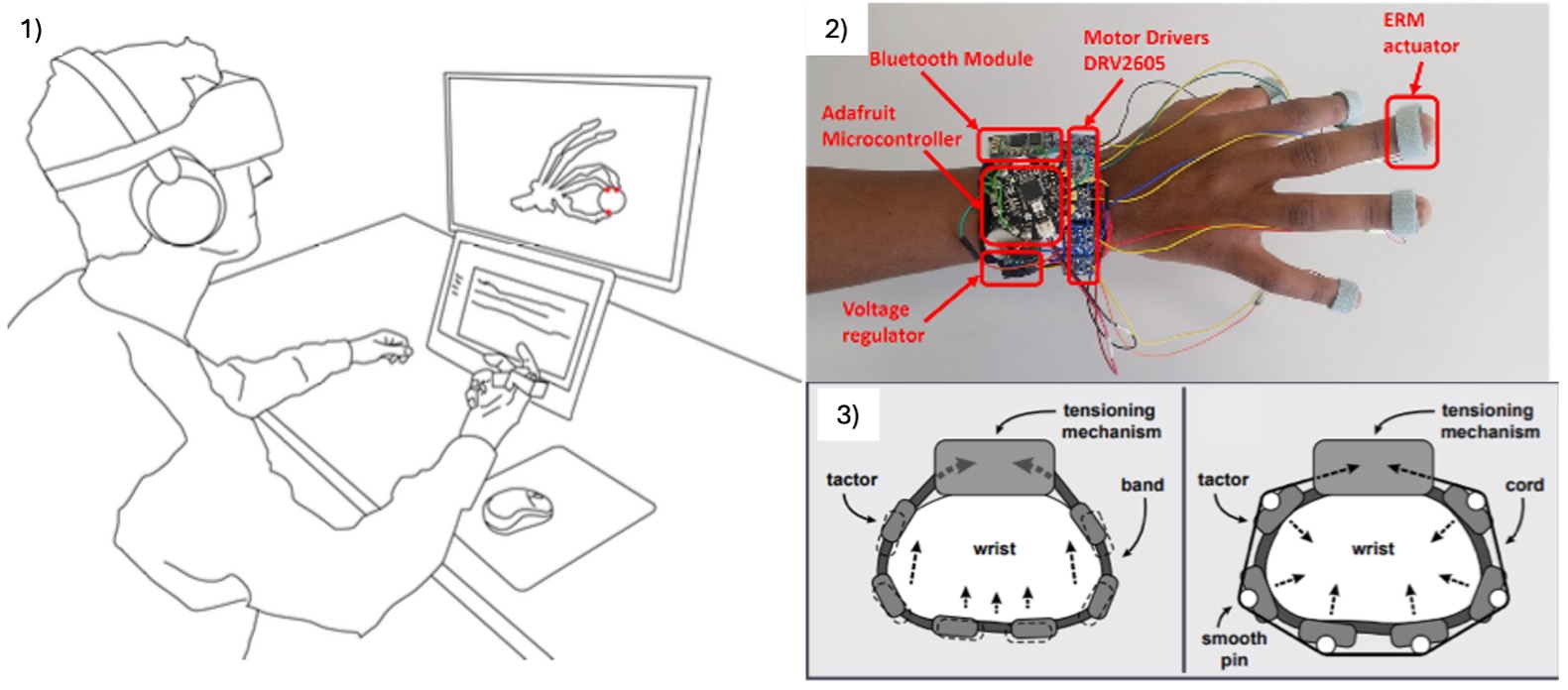Wearable Vibrotactile haptic devices developments for Mixed reality interactions
- Typ:Praktikumsarbeit
- Betreuung:
-
Motivation
The motivation behind this research lies in the transformative potential of wearable vibrotactile haptic devices to enhance Mixed Reality (MR) interactions, particularly within the healthcare field. As MR becomes increasingly integrated into surgical environments, precise and intuitive feedback mechanisms are essential to support surgeons’ spatial awareness and decision-making. Current MR applications often lack tactile elements, making it difficult for users to fully engage with virtual content in ways that mimic real-world interactions. By developing advanced vibrotactile feedback, we aim to bridge this gap, allowing for a more immersive and intuitive experience where haptic cues provide real-time guidance. This technology could revolutionize how surgeons navigate complex procedures, improving patient outcomes.
Task
The primary task of this project is to design and develop wearable vibrotactile haptic devices by using a microcontroller to control a series of small motors. Intern will be involved in electronic design, which includes selecting and integrating components such as microcontrollers and actuators to build the device’s hardware structure. Following this, the intern will work on code implementation by programming the microcontroller to generate controlled vibration patterns across multiple motors, creating feedback tailored to specific Mixed Reality interactions. Finally, interns will engage in rigorous testing and iteration to fine-tune motor placement, vibration intensity, and response timing, ensuring the device provides an intuitive and realistic tactile experience for users in a Mixed Reality environment.Requirements
- Basics of electronics
- Basics of codingGood to have
- Experience with Arduino DIE
- C programming language

